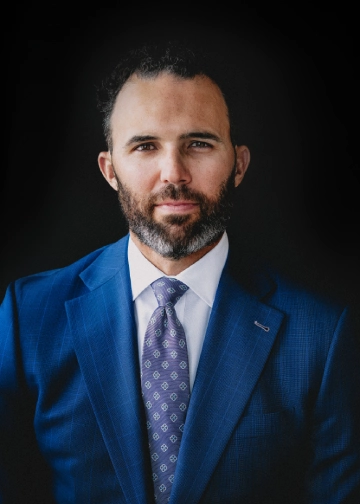
Dallas DWI Lawyer
PROTECTING YOUR FREEDOM & YOUR BUSINESS
As recently as the 1990s, DWI arrests in North Texas were few and far between, and few people needed a Dallas DWI Lawyer. Because of the way the law was written in Dallas TX, the cases were difficult to prove in court. Furthermore, MADD and other advocacy groups were just getting started. So, drinking and driving was not a serious matter to many people. As a result, when officers detained intoxicated motorists, they often released them as long as they agreed to drive straight home.
Times have changed drastically. For one thing, legislators rewrote the law. If the defendant provides a chemical sample, the conviction rate is close to 90 percent. New technological tools, such as more advanced Breathalyzers and Ignition Interlock Devices, are also available. Now more than ever, you need the best DWI defense attorney at your side in these cases.
At Gallian Firm, we have DWI defense attorneys who are former prosecutors—we know how these lawyers think. Our DWI lawyers will quickly evaluate your case and identify all possible defenses. Once our attorneys and our clients develop a plan of action together, we do not relent until we achieve the best possible result under the circumstances. That result could be a complete dismissal of charges, a plea to a lesser-included offense, or a not-guilty verdict at trial.
What Is the Basic DWI Law in Texas?
Under Section 49.04 of the Texas Penal Code “Driving While Intoxicated”: “A person commits an offense if the person is intoxicated while operating a motor vehicle in a public place.”
For a first-time infraction, the offense is normally a Class B misdemeanor.
Some DWI enhancements and the direct and indirect DWI penalties in Texas are discussed below. As for intoxication, like most states, Texas now has a per se DWI law.
If the defendant’s BAC (Blood Alcohol Concentration) is above the legal limit of .08, the defendant is intoxicated as a matter of law. That’s assuming the Breathalyzer, blood test, or other chemical test was working properly, and authorities followed all procedures to the letter.
Prosecutors may also use circumstantial evidence to prove the defendant did not have “the normal use of mental or physical faculties by reason of the introduction of alcohol, a controlled substance, a drug, a dangerous drug, a combination of two or more of those substances, or any other substance into the body.”
The other two primary elements, operating a motor vehicle and a public place, both have specific meanings in this context, did not have “the normal use of mental or physical faculties by reason of the introduction of alcohol, a controlled substance, a drug, a dangerous drug, a combination of two or more of those substances, or any other substance into the body.”
In circumstantial evidence DWI cases, prosecutors must establish guilt beyond any reasonable doubt. That’s the highest standard of proof in Texas law.
Is DWI a Felony?
Dallas County prosecutors are among the most aggressive prosecutors in Texas. If there is any indication that a DWI enhancement might apply, prosecutors almost always levy the most serious charges possible.
This aggressive stance often intimidates less-experienced Dallas DUI/DWI lawyers or defendants who do not have attorneys. But the best DWI defense attorney knows that this approach often backfires. Since the burden of proof is so high, there often is not enough evidence for these enhancements to hold up in court.
All felonies have significant collateral consequences. For example, convicted felons cannot hold most professional licenses in Texas. Other effects include the loss of voting and gun ownership rights.
Charged With a Felony DWI
A third DWI conviction is a felony. Enhancements, such as drunk driving with a child passenger, intoxication assault (usually a vehicle collision that causes serious bodily injury), and intoxication manslaughter (causing a fatal accident) could apply as well. Generally, however, DWI is a misdemeanor. If you have multiple DWI convictions and hire the wrong DWI lawyer, you could be making a huge mistake.
What Are the Possible Penalties If I Am Charged With A DWI?
Most people are familiar with the direct and indirect consequences of a DWI. So, an arrest is scary to say the least. An experienced DWI lawyer like Gregg Gallian walks you through the pretrial process. This process usually includes one or two procedural hearings that involve little activity, followed by a pretrial hearing which determines some evidence issues. About 90 percent of DWI cases, and other criminal cases, settle out of court.
First-time DWI offenses dominate the criminal court dockets across North Texas. In many jurisdictions, about a third of the probationers were convicted of first-time DWI.
This infraction is normally a Class B misdemeanor, unless one of the above-mentioned enhancements or special DWIs applies. The maximum punishment is 180 days in jail and/or a $2,000 fine.
Almost all DWI defendants receive probation. Offense-specific conditions of probation vary. However, they normally include:
- DWI victim impact panel,
- Community service,
- Abstinence from alcohol,
- Alcohol evaluation, and
- DWI driving school.
Standard conditions include reporting to a probation officer, paying supervision and other fees, and staying out of trouble with the law.
Driver’s license suspension of up to one year is the other major direct punishment. An occupational drivers’ license is usually available.
Higher auto insurance rates is the most significant collateral consequence. Convicted defendants must purchase high-risk SR-22 insurance. As a result, their insurance rate often triples. Generally, these drivers must maintain these policies for at least three years.
DWI also has significant employment consequences. Many potential bosses believe that a DWI is evidence of poor judgement skills. Additionally, many commercial insurance companies do not cover people with DWI convictions.
A second conviction is a Class A misdemeanor. Additional direct consequences include a maximum two-year license suspension.
Charges for an Open Container Violation
It is a Class C misdemeanor to have an open container of alcohol in the passenger area. Basically, the passenger area is anything within reach of anyone inside the vehicle. The passenger area does not include the trunk, glove compartment, or pickup bed. Exceptions apply if the vehicle was a motorhome or otherwise used as a residence.
A Class C misdemeanor is basically a traffic ticket. It’s punishable by a maximum $500 fine. No jail time is possible. Possession of more than one open container is a single offense (e.g. three beer cans equals one charge).
Driving After a DWI Charge
This is one of the most common topics our clients ask about, so let’s take a moment to look into it more deeply.
Can You Drive After You Are Arrested for DWI?
In Texas, even if you refuse a blood or breath test, you are able to drive with your license for 40 days after the arrest. Usually. Texans with suspended drivers’ licenses are typically eligible for occupational drivers’ licenses (ODL).
These limited drivers’ licenses allow people to drive to and from work, to and from school, and in performance of essential household duties, such as going to the doctor’s office, grocery store, or courthouse. An ODL is usually valid for two years, unless a judge extends it. Significant restrictions, such as a waiting period, apply.
What Is an Administrative License Revocation (ALR) Hearing?
DWI arrests usually involve drivers’ license suspension proceedings. The state can suspend your drivers’ license if you refuse a lawful request to provide a chemical sample or your BAC is above the legal limit. At this hearing, an Administrative Law Judge determines if officers had probable cause to demand a sample or the sample provided was above the legal limit. The ALJ, who serves as judge, jury, and executioner, can enforce the entire suspension period, impose a lesser suspension, or throw the matter out altogether.
Do I Need a DWI Defense Lawyer for an ALR Hearing?
Definitely. Since an Administrative License Revocation hearing is not a criminal proceeding, most Constitutional protections do not apply. So, only a Dallas DWI defense attorney can stand up for your rights in these hearings. Another reason you need a lawyer is that the outcome is not all that matters in these situations. The hearing gives your lawyer a chance to cross-examine the arresting officer under oath. Most defendants must pay hundreds of dollars for this kind of discovery, if it’s available at all. So, if you do not have a lawyer at the ALR hearing, you miss a golden opportunity to help prepare your legal defense.
How Many Days From the Date of My Arrest Do I Have to Act?
Two activities, an administrative proceeding and criminal proceeding, usually stem from a DWI arrest. Administratively, defendants usually have fourteen days to request an ALR drivers’ license suspension hearing. If they miss this deadline, the full suspension period automatically takes effect on the 40th day. Criminally, most defendants have their first court dates about three months after their jail release dates. Defendants who remain in jail usually see a judge within 24 hours.
How Long Is Probation for First-Time DWI?
Probation length varies, usually depending on the facts of the case, especially the presence or absence of aggravating factors, like a child passenger or a .15 or higher BAC level. Typically, DWI probation for first-time DWI lasts about a year. Defendants may ask for early discharge after they complete one-third of the probationary period.
Can a DWI Be Dismissed?
Technically, court prosecutors have the power to dismiss any criminal case, including a DWI, for any reason. That reason is usually lack of evidence, a technical problem, like an inadequate charging document, or prosecutorial discretion. However, many District Attorneys have no-dismissal policies in this area, mostly for political reasons.
How Do You Beat a Dallas County DWI Charge in Texas?
A variety of defenses are available. Non-intoxication defenses include not operating a motor vehicle. Usually, the vehicle must be fully functional and the defendant must have the keys. Furthermore, a DWI must be in a public place in Texas. Apartment complex or shopping mall parking lots are not public places, no matter how big they are.
Jurisdictional issues sometimes arise as well. Many North Texas cities are partially in one county and partially in another one. If prosecutors bring charges in the wrong county, they must start over from the beginning.
Intoxication defenses are available as well. The Field Sobriety Tests, like the walking-a-straight-line test, are quite subjective. Furthermore, they do not have sound scientific foundations. Like all machines, the Breathalyzer is not perfect. Its flaws are usually related to issues with its underlying technology. Blood tests often have procedural problems, such as the lack of a proper search warrant.
What Are the Deadlines for DWI Cases in Dallas?
Most people who are arrested for Driving While Intoxicated, Driving Under the Influence have never been arrested before. That is because Driving While Intoxicated does not have a mental requirement – intentional, knowingly, recklessly – like many other offenses do. It is not required that you must have known you were intoxicated prior-to driving.
For that reason, individuals like you, who had no intention of ever breaking the law, have now been arrested and charged. Unfortunately, simply operating your vehicle while intoxicated is all the police think they need. However, that is not always the case.
If you have never been arrested before, you can begin to feel like your world is caving in around you. You will start to worry about what your friends, family, and employers might think or do. But, there’s something you need to do first –contact your criminal defense attorney or to be more specific, hire the DWI lawyers at Gallian Firm to defend you and protect your rights.
If the officer asked you to take a blood or breath test, and you refused (which you should), the officer likely took your driver’s license. Meaning, you only have 14 days to request an ALR hearing. Failure to do so mean you will lose your driving privileges in the State of Texas for at least 180 days.
With so many things on your mind already – friends, family, employers, car insurance, etc. – let Gallian Firm take care of the criminal case from the very beginning and put your mind at ease. I am focused on fighting, every day, for people just like you.
Locations Serve
- Balch Springs
- Bishop Arts District
- Celina
- Coppell
- Deep Ellum
- DeSoto
- Farmers Branch
- Kaufman
- Knox-Henderson
- Lancaster
- Southlake
- Trophy Club
- University Park
Contact Our Dallas DWI Attorneys at Gallian Firm Today
Alcohol-related offenses are some of the most complex criminal matters in Texas. As we mentioned above, simply searching on a search engine for “DWI lawyer near me” or “DWI attorney near me” and choosing someone who could be a very inexperienced DWI Dallas lawyer could be a costly mistake. It could cost you your freedom and a hefty penalty. If you live in Dallas you don’t need to Google DWI lawyer near me or DWI attorney near me! The best DWI defense law firm in Dallas is right here, on the page you are currently reading.
For a free consultation, contact Gallian Firm today. You can make an appointment online or call 214-432-8860 and someone will respond to your inquiry right away.
Practice Areas
Other
Practice Areas
Meet The Team

Gregg Gallian
PARTNER

Jaclyn Gallian
PARTNER

Jay Hickey
CRIMINAL DEFENSE ATTORNEY
What Our Clients Say


“Gallian Firm helped me win my case against all odds.”
Jen B.